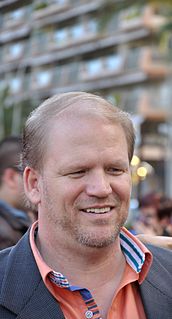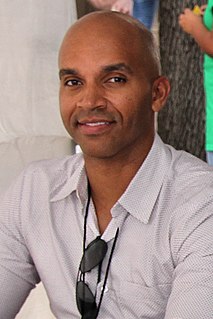A Quote by Robyn Davidson
I think a lot of writers are unrealistic about having their books translated into film.
Quote Topics
Related Quotes
The people who review my books, generally, are kind of youngish culture writers who aspire to write books, or write opinion pieces about what they think of Neil Young, or why they quit watching ER or whatever. And because of that, I think there's a lot of people who write about my books with the premise of, "Why this guy? Why not me?"
I've never translated more than one book by any author. But I'm fascinated by translators who have, like Richard Zenith, who's translated so much of Fernando Pessoa's work. I get restless for a new kind of influence. The books I've translated are books I want to learn from as a writer, to be intoxicated by. And translation is an act of writing in itself. It's an act of recreation - of a writer's cadence and tone and everything that distinguishes the voice in the book.
The reason some crime writers have a chip on their shoulder about the label is because their good books are shelved beside books about nuns and birdwatchers and cats who solve crimes. Overseas, my books are reviewed alongside those of authors like Robert Stone and Don DeLillo, and I have to live and die by that comparison. They don't ghettoize crime writers in other countries, and of course they shouldn't.
The people who review my books, generally, are kind of youngish culture writers who aspire to write books. When someone writes a book review, they obviously already self-identify as a writer. I mean, they are. They're writers, they're critics, and they're writing about a book about a writer who's a critic. So I think it's really hard for people to distance themselves from what they're criticizing.
It was always about the future of writers, and about the way writers are treated in the future, and I think that was really hurtful to a lot of people in my position who had 160 people who depended on them to get this over with. So there was a lot of pain in it, and in that sense it will never be worth it, but I do think it was important.
In fact, many of the quotes in my books are quotes which were translated from English and that I read already translated into Spanish. I'm not really concerned with what the original version in English was, because the important thing for me is that I received them already translated, and they've influenced my original worldview as translations, not as original quotations.
A lot of writers, especially crime writers, have an image that we think we're trying to keep up with. You've got to be seen as dark and slightly dangerous. But I'm not like that and I've realised that I don't need to put that on. People will buy the books whether they see a photo of you dressed in black or not.





































